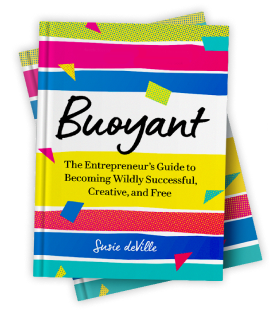My clients often struggle on the path to overcoming Imposter Syndrome. Anxiety that we aren’t enough can drive us to constantly do more but can also deprive us of savoring our successes. However, overcoming Imposter Syndrome is possible.
Happiness is the absence of the striving for happiness.
One of my VIP client’s flight from LA landed on time in Atlanta, and we were through the traffic in midtown before rush hour. Gary’s coaching experience was off to a great start.
As we wound our way up the mountain, Gary regaled me with stories of his most recent pitch to investors and how excited he was that they had won the deal. He updated me on his growing team and felt optimistic that he finally had “the right people on the bus and in the right seats.”
Even his new workout routine was suiting him—he was faithfully going to the gym three times a week.
As he spoke, Gary intently focused on shredding the paper sleeve from his straw. He tore the paper into ever smaller pieces until all that remained was a little paper dust heap that he swept from his lap into the bag from the drive-through.
“All excellent news!” I said. “You must feel amazing!”
“Yeah, yeah, I’m excited about where we are headed,” said Gary. He added, “Well, mostly.” Gary turned toward the window and stared down at the Cullasaja Gorge.
I waited a bit and then asked, “Mostly?”
Gary rubbed his palms forward on his lap and shifted in his seat. “I guess I’m feeling a bit lost now that we’ve hit this big milestone,” he said. “Antsy even. I need a new mountain.”
Gary’s team winning the deal of a lifetime was only two days old. In fewer than 48 hours, his old nemesis, Imposter Syndrome, had found its way back into his brain and was barking painful thoughts.

Imposter Syndrome Isn’t Motivation
Thoughts such as their winning the deal was a fluke, that they’d all be found out. That the deal was not that great after all; they’d be fundraising again in no time. That the great souls he had recruited would leave for other opportunities or flake out somehow. Anxiety had become source of Gary’s drive, and he was struggling to overcome Imposter Syndrome.
Gary’s go-to move every time he felt like an imposter (which was the vast majority of the time) was to set a new goal, an even higher mark to strive for. And then he’d get busy working, working, working even to the point of exhaustion—anything to avoid feeling that he wasn’t enough.
We cannot outrun or numb our thoughts and feelings, though, no matter how sophisticated our efforts are. This bill will always demand payment. Healthy motivation doesn’t come from running away, we gain it by overcoming Imposter Syndrome.
From an outside observer’s perspective, Gary was a winner, a champion in the startup space. Colleagues would describe him as affable, smart, and accomplished. Inspirational.
And very, very driven.
Gary, though, never felt he was good enough in any arena. Regardless of the string of achievements he had under his belt, nothing he did ever granted him satisfaction or peace. He felt compelled to always be in motion.
Overcoming Imposter Syndrome by Doing the “Opposite”
During his VIP experience in the mountains, I took him on long hikes through rugged territory. I removed all of his distraction crutches and essentially plunked him down in the woods with me for hours with only a water bottle, a journal, and a pencil.
We’d walk for miles without speaking. I witnessed Gary thrash a bit in the silence initially and then surrender to it. We sat on rock ledges and stared out at the mountains. I guided him through a series of journaling exercises, and we wrote together until the late afternoon.
Gary finally had spaciousness, stillness, and the requisite quiet to hear himself think without the urge to outrun his thoughts.
Before long, his intuition and genius rose from the depths. The tap to his Creative Backchannels was turned to the on position, and Gary wrote in a torrent, trying to keep up with the ideas and epiphanies that were landing without ceasing.
Later that night at dinner, Gary kept his phone off and in his pocket. He spoke about his family and decided to surprise them with a long-overdue trip to northern California. He was calm, happy and wanted to linger at the restaurant well after our meal.
As we stood and pushed our chairs back, Gary looked around the restaurant and said, “It’s beautiful here. I don’t mean the restaurant, although it’s lovely. I mean what it feels like to me right now. I never thought I’d get here.”
For those of us who feel compelled to achieve in order to feel that we have worth or value, our never-ending striving separates us from everything (and everyone) that can connect us to joy, ease, and flow.
The anxiety of not-enoughness fuels our drive for more and sucks all the oxygen out of the room. Anxiety can’t provide healthy motivation, or help us in overcoming Imposter Syndrome.
The antidote is to do the very opposite of our instinctual responses. Instead of running, we stop. Instead of busyness, we get still. Instead of overdoing, we rest. Instead of immersing ourselves in noise, we get quiet. Instead of withholding pleasure, we seek out fun and play.
With spaciousness and focus, we at last connect to our limitless wisdom and insights. It is in this magical realm we realize we already arrived and have everything we need to overcome Imposter Syndrome.










